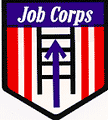|
Job Corps course title: Air Conditioning and Refrigeration. In
this course students first develop entry level skills in domestic
refrigeration and air conditioning repair and maintenance. Advanced
training that includes theory and application of heating principles
and commercial air refrigeration and system design is available.
On the job, heating, air conditioning, and refrigeration mechanics
and helpers install, maintain and repair heating, cooling, and refrigeration
equipment in residential, commercial, and industrial buildings.
Mechanics may also be called heating and air conditioning technicians,
or environmental control system installers or servicers.
Back to Top
Air conditioning and refrigeration mechanics and helpers work wherever
the equipment to be installed or repaired is located. They may work
outdoors, either on the ground or rooftops, or inside office buildings,
warehouses, or private residences. They bring the tools and parts
they need to the job site.
Mechanics working outdoors are exposed to all types of weather.
They must be in good health and have above average strength and
coordination in order to lift or move heavy pieces of equipment.
Work may require using ladders or scaffolding. The mechanics must
assume awkward and cramped positions to reach parts of the unit
during installation, servicing, and maintenance. They are exposed
to various occupational hazards, such as electrical shocks, burns
from welding equipment, operating machinery, and exposure to refrigerants
and fuels such as heating oil and natural gas.
Since they are in frequent contact with the public, they must be
able to deal courteously and tactfully with customers and with workers
in the construction trades.
Most employers require that mechanics be licensed to drive, and
be bondable. The mechanics may also be required to supply their
own hand tools which range in price from $100 to more than $1,000.
Mechanics in metropolitan areas of California may be highly unionized.
Many service and maintenance shops are small with little chance
for advancement. In larger shops, journey-level mechanics can advance
to supervisory positions. Some mechanics can become self-employed.
However, as experience is gained, especially in union positions,
there are substantial salary increases possible.
Back to Top
In Santa Clara County this is a small occupation of less than 1,000
employed, however, the growth is projected to be above average.
This occupation is among the top fifty fastest growth occupations
in California. As the population and economy grow, so does the demand
for new residential, commercial, and climate control systems. Concern
for the environment and energy conservation should continue to prompt
the development of new energy saving heating and air conditioning
systems. Better systems will also lead to the replacement of older
ones.
|
Santa Clara County
Entry Level/No Experience
|
|
Union
$10.00-$15.00
|
Median
$14.00
|
|
Non-Union
$7.00-$12.00
|
Median
$9.00
|
To enroll in this San Jose Job Corps Course: 540 TABE math/reading
score OR GED/HS diploma.
Job specific skills: Ability to read blueprints, sheet metal working
skills, plumbing and pipefitting skills, soldering skills, welding
skills, possession of a good DMV driving record, ability to provide
own hand tools, and good customer service skills. Basic math skills,
ability to read and follow instructions, ability to work independently
as well as part of a team, attention to detail, and ability to lift
at least 10-50 lbs. Oral communication skills, ability to work under
pressure, ability to do strenuous, physically demanding work, and
ability to stand continuously for two or more hours is required.
Back to Top |



